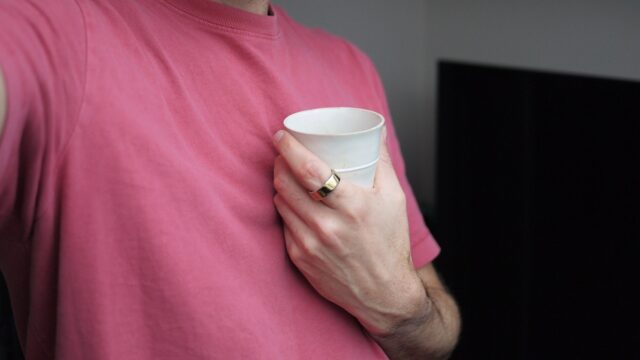Many of us wear either a smartwatch or a smart ring to track and keep an eye on our health and fitness levels. But can they potentially diagnose us with serious, life-threatening conditions?
As a nurse in the US recently made headlines by explaining how her Oura Ring notified her of “signs of a major illness” months before being officially diagnosed with stage four Hodgkin Lymphoma, we delve into how the Oura Ring works and whether it really can detect serious illnesses like cancer.
If you’re interested to learn more about how other wearables can detect conditions, you should read our own Lewis Painter’s experience with the Samsung Galaxy Watch 8, which detected sleep apnea.
Can Oura detect if you’re sick?
Oura members have access to Symptom Radar, a tool which promises to identify early signs of strain on your body. It does this by assessing significant changes in your Oura data, while measuring over 50 wellness metrics, including increases in body temperature trends, respiratory rate, resting heart rate or a decrease in heart rate variability (HRV). Oura also explains that any changes in sleep or activity can also be an indicator of sickness.
You’ll then be given an estimated level of what’s straining your body. This includes:
- No signs, which means there are no obvious signs of something straining your body
- Minor signs, when the Oura Ring picks up on small signs of something straining your body
- Major signs, when there are stronger signs in your biometrics that show there’s likely something straining your body
However, Oura explains that Symptom Radar may not work with pre-existing medical conditions, nor with pregnancy. In such instances, notifications should be treated with caution, and you definitely shouldn’t make any changes to your medication or lifestyle without consulting a medical professional first.

Is Oura medically accurate?
Unlike Whoop MG, which stands for Medical Grade, the Oura Ring is not classified as a medical-grade device. Oura states that all iterations of its Ring are “not intended to diagnose, treat, cure, monitor or prevent medical conditions or illnesses.”
Oura also pleads that users should not make any changes to their medication, nutrition or workouts without first consulting a doctor or medical professional.
Having said that, as the Oura Ring 4 is fitted with multiple sensors that promise to improve accuracy from the Ring 3, the collected data is designed to offer users an insightful look at their day-to-day health. Plus, any unusual spikes across data can help you notice and flag a potential cause for concern to your doctor.
What do doctors think of Oura rings?
We spoke with Dr Bradley, Clinical Lead Doctor from healthcare provider Balance My Hormones, to see what he thinks about the use of Oura rings.
He explained that while devices like the Oura ring can “offer valuable insights” into numerous metrics such as your resting heart rate, HRV and sleep pattern, “it’s very important to remember that the Oura ring is not a diagnostic device”.
“The Oura ring can complement a healthy lifestyle, but it’s crucial not to let it replace professional healthcare”.
Finally, Dr Bradley advises wearable fans to “use the data to keep an eye on things to discuss with your GP, rather than a definitive verdict on your health and wellbeing.”











